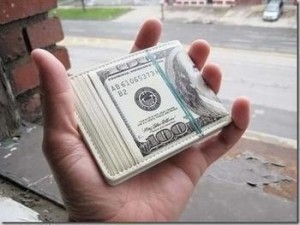Are new taxes fair?
 The presidential election may have decided in favor of Obama, but a creepy reminder of Mitt Romney tax policy keeps creeping into view. With the fiscal cliff just around the corner every American is waiting with bated breath for these tax talks to be resolved.
The presidential election may have decided in favor of Obama, but a creepy reminder of Mitt Romney tax policy keeps creeping into view. With the fiscal cliff just around the corner every American is waiting with bated breath for these tax talks to be resolved.
A new idea from an unlikely source is getting bipartisan attention as a way to broaden the base of taxpayers while limiting loopholes and deductions taken by the wealthy. This proposal that just so happens to be the brainchild of the failed presidential contender Mitt Romney would limit the amount of itemized deductions to a certain monetary limit.
“There’s renewed interest” in the cap on deductions, Senator Kent Conrad, the North Dakota Democrat who heads the Senate Budget Committee said.
This seems like a too good to be true generic way of taxing everyone equally without getting any sore feelings from lobbyists or or powerful interests. Since it seems as if no one can pin down the actual specifics of any plan a politician puts forward until the thing is passed and already effecting our lives. Tax experts disagree that this methodology would serve as a quick fix for our broken tax system claiming that it would disproportionately effect different tax bases.
But this solution doesn’t tackle the larger tax preferences, which make up a large part of the Buffet rule, saying that no wealthy person should be paying less in taxes than their secretary.
These experts have their suspicions that this tax proposal may be a wolf in sheep’s clothing that disproportionately increases the tax burden on the poor and middle class while do nothing to curb the favorable tax environment for the wealthy. This would also effect the entire donor model which so many nonprofits, schools, and museums require to survive.
Martin Feldstein, a Harvard economist and the chairman of the Council of Economic Advisers under President Reagan, thinks that this methodology is a great way to lower the deficit. His proposal calls for capping deductions at 2 percent of income for all individuals.
But this cap on deductions would hit the lower socioeconomic classes where they need it the most… in the charitable sector. That is because this deduction is largely discretionary and at the will of the taxpayer to how much he or she would deduct from their tax bill.
Will this cap on deduction send the charitable sector or our economy into dire straights or is capping deductions that silver bullet needed put the breaks on the economy that is heading towards a fiscal cliff.

